JAPANESE FOREIGN INTELLIGENCE AND GRAND STRATEGY
JAPANESE FOREIGN INTELLIGENCE AND GRAND STRATEGY
FROM THE COLD WAR TO THE ABE ERA
BRAD WILLIAMS
Georgetown University Press / Washington, DC
2021 Georgetown University Press. All rights reserved. No part of this book may be reproduced or utilized in any form or by any means, electronic or mechanical, including photocopying and recording, or by any information storage and retrieval system, without permission in writing from the publisher.
The publisher is not responsible for third-party websites or their content.
URL links were active at time of publication.
Library of Congress Cataloging-in-Publication Data
Names: Williams, Brad, 1969- author.
Title: Japanese foreign intelligence and grand strategy : from the cold war to the Abe era / Brad Williams.
Description: Washington, DC : Georgetown University Press, 2021. | Includes bibliographical references and index.
Identifiers: LCCN 2020021727 | ISBN 9781647120634 (hardcover) | ISBN 9781647120641 (paperback) | ISBN 9781647120658 (ebook)
Subjects: LCSH: Intelligence serviceJapan. | National securityJapan. | JapanForeign relations1945- | JapanForeign relationsUnited States. | United StatesForeign relationsJapan.
Classification: LCC JQ1629.I6 W55 2021 | DDC 327.1252dc23
LC record available at https://lccn.loc.gov/2020021727

This book is printed on acid-free paper meeting the requirements of the American National Standard for Permanence in Paper for Printed Library Materials.
22 219 8 7 6 5 4 3 2 First printing
Printed in the United States of America
Cover design by Jeremy John Parker
Interior design by Blue Heron, Paul Hotvedt
, on behalf of the Journal of Contemporary Asia.
A section of expands and updates significantly ideas presented by Brad Williams in Explaining the Absence of a Japanese Central Intelligence Agency: Alliance Politics, Sectionalism and Antimilitarism, Journal of East Asian Studies 13, no. 1 (2013). 2013 East Asia Institute. Used by permission of Lynne Rienner Publishers, Inc.
CONTENTS
ILLUSTRATIONS
Tables
Figures
ACKNOWLEDGMENTS
This book is the product of several years of researching and teaching about, first, Japanese politics and foreign policy and, then, intelligence. I have incurred an enormous debt to the many individuals and institutions who facilitated and enriched this research. I am especially grateful to Jeff Funk, Purnendra Jain, Kotani Ken, Lam Peng Er, Dan Lynch, Dick Samuels, and Michael Schaller for providing thoughtful and constructive comments on parts of the manuscript. I also thoroughly enjoyed and benefited immensely from lunchtime conversations with Dick about both academic and nonacademic matters in New Orleans and Tokyo. Dick, I owe you some meals and beers, so it is my shout if you ever come to Hong Kong.
I would also like to express my gratitude to Ken for kindly sharing with me his considerable knowledge about Japanese intelligence and for patiently answering my numerous questions. Fukuyama Takashi, Kato Tetsuro, Ochiai Kotaro, Andrew Oros, Matt Parrella, Tsuchiya Motohiro, and Yoneyama Hiroshi were also generous with their time and provided invaluable insights into the subject matter. Many thanks also to Roger Faligot, Hoshino Mitsuaki, Inoue Masaya, Stephen Mercado, Takahashi Katsuhiro, Takizaki Shigeki, and Yoshida Noriaki for responding to my queries. Eric van Slander, David Langhart, and Jeffery Hartley from the National Archives and Records Administration in College Park, Maryland, and Mary Curry and Bob Wampler from the National Security Archive were all extremely kind and helpful in locating useful materials for the project. The staff at the National Diet Library in Tokyo were also fantastic during my numerous visits. Toby Carroll and Mark Thompson were great sounding boards. Cheers, gents. I also benefited from numerous conversations (but not the hangovers!) with my nominakama (drinking buddies) from Sake Bar GINN.
I am indebted to Don Jacobs at Georgetown University Press for showing an interest in the project and to him and the anonymous referees for the many helpful suggestions for improving the manuscript. Thanks also to Elizabeth Crowley Webber, who patiently guided me through the book production process, and to her and Don McKeon for their thoughtful and thorough editing. The work described in this book was fully supported by a grant from the Research Grants Council of the Hong Kong Special Administrative Region, China (CityU 21402414), for which I am grateful. Finally, I must thank Chika, Miu, Mum, and Dad for their love and support during the project and only regret that Mum was unable to see its completion. I dedicate this book to them as a token of affection and gratitude.
Finally (this time I mean it), an unusual caveat applies: in this age of irresponsibility, I blame everybody listed above for any mistakes or oversights!
Brad Williams
Hong Kong
CONVENTIONS
Japanese names are written in their proper order, with family name preceding given name. The names of Japanese authors of English-language works, however, follow the English practice of the personal name preceding the family name. Macrons are put on Japanese long vowels except in the case of place names, words commonly used in English, and author names that usually appear without a macron in their English-language works.
ABBREVIATIONS
ADIZ | air defense identification zone |
ASDF | Air Self-Defense Force |
ASIS | Australian Secret Intelligence Service |
ASW | antisubmarine warfare |
BND | Federal Intelligence Agency (Germany) |
CBPA | Cabinet Bureau of Personnel Affairs |
CCF | Congress for Cultural Freedom (United States) |
CCRC | COMINT communications relay center |
CIA | Central Intelligence Agency (United States) |
CIB | Cabinet Intelligence Bureau |
CIC | Cabinet Intelligence Committee (Naikaku Jh Kaigi) |
CIRO | Cabinet Intelligence and Research Office (Naikaku Jh Chsashitsu) |
COMINT | communications intelligence |
CRC | Cabinet Research Chamber (Naikaku Sri Daijin Kanb Chsashitsu) |
CRO | Cabinet Research Office (Naikaku Chsashitsu) |
CSICE | Cabinet Satellite Intelligence Center (Naikaku Eisei Jh Sent) |
CSIS | Central Special Intelligence Section, IJA General Staff |
DCI | director of cabinet intelligence |
DGSE | General Directorate for External Security (France) |
DIH | Defense Intelligence Headquarters (Jh Honbu) |
DPJ | Democratic Party of Japan |
DSP | Democratic Socialist Party |
EEA | Economic Espionage Act (United States) |

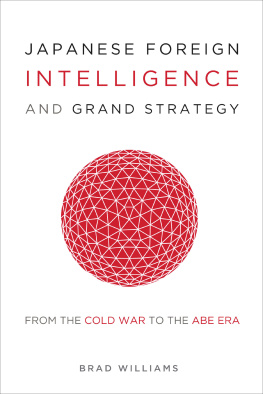


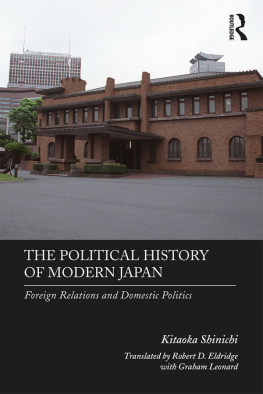

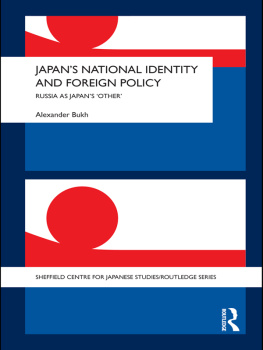

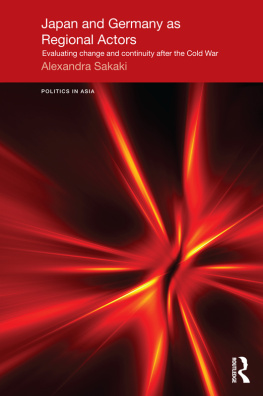
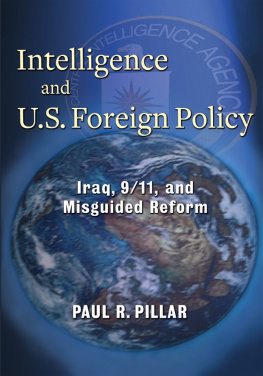

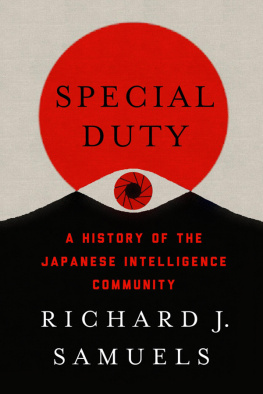


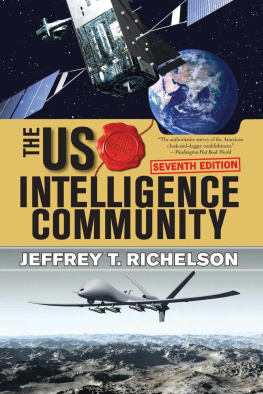
 This book is printed on acid-free paper meeting the requirements of the American National Standard for Permanence in Paper for Printed Library Materials.
This book is printed on acid-free paper meeting the requirements of the American National Standard for Permanence in Paper for Printed Library Materials.